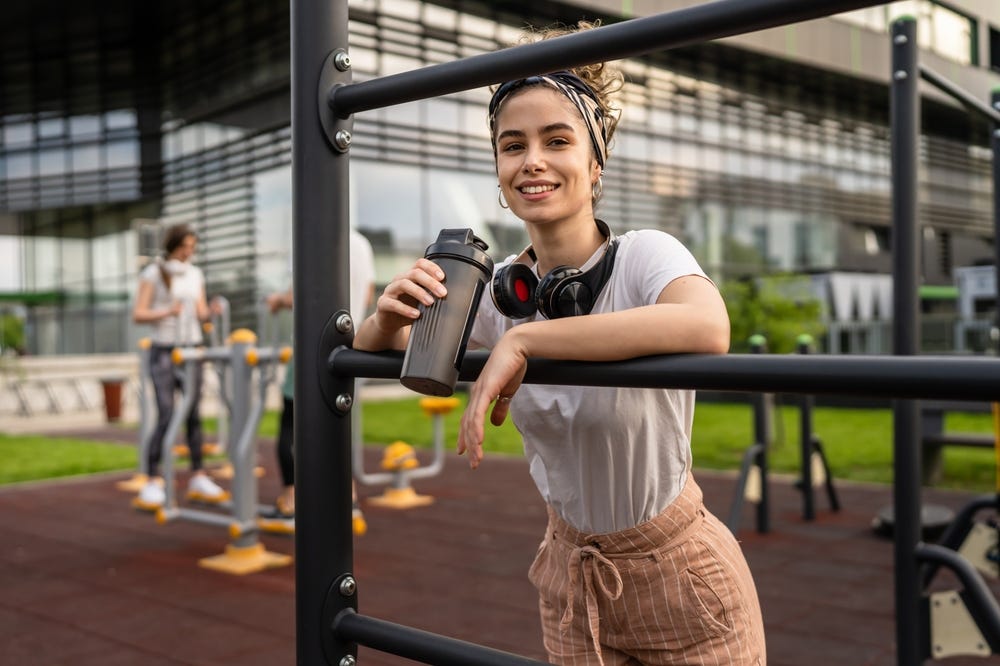Athletic Performance: An Interview with a Sports Nutritionist
It is no secret that consuming functional ingredients like nootropics, adaptogens, and others helps the body manage stress, perform better, and increase the quality of life. But, these functional ingredients can only do so much if other healthy habits are not adopted. For example, consuming pre and probiotics do wonders for digestive health, but if they are combined with a diet full of processed foods, their benefits typically are not seen.
As we look at ingredients that increase athletic performance, a pause needs to be taken to “look at the bigger picture” and think about it as a whole—how diet and functional ingredients work together to increase performance. This is where Food Science and Nutrition intersect.
For this post, we talked to Dr. Laurel Wentz a leader in the sports nutrition field to explain the differing nutritional requirements for athletes as well as some of the supplements she recommends.
Is there a difference in nutritional requirements for an athlete that is performing anaerobic vs. aerobic exercise?
The answer is nuanced. It really depends on the athlete, the specific sport as well as their position, but overall, yes. For example, a diver overall energy needs would be much lower than a distance swimmer of the same weight. Additionally, the swimmer would have a greater requirement for carbohydrates, whereas the diver could consume most carbohydrates from fruits and vegetables.
What are some of the nutritional requirements for vegan athletes? Do they differ from non-vegan athletes?
Vegans should consume greater total protein compared to omnivores, due to the lower bioavailability from plant protein. Vegan athletes need around 1.5 g protein/kg body weight (this will vary by sport). All athletes should consume vitamin D supplements or fortified foods in the winter, since even animal products have low availability. Vegan athletes may need iron and calcium supplements. Although these minerals are found in plant foods, the athlete would need to consume abundant dark leafy greens (e.g., >3 cups cooked spinach/d) to reach needs. Vitamin B12 is found exclusively in animal foods so vegan athletes should consume a supplement or high amounts of fortified foods. All athletes likely need an omega-3 fatty acid supplement, since research shows even 2 servings of fatty fish/week do not raise omega-3 levels to recommended amounts.
How important is recovery for an athlete?
Essential! Otherwise, the athlete will develop symptoms of overtraining (soreness, rapid heartbeat, poor sleep, poor performance). Focus on hydration, 25 g protein post-exercise and carbs to support activity (will need more for >1 hour of activity). 7-9 hours of sleep each night is important to recovery as well.
Are there different types of athletes? If so, what are the differences in their nutritional requirements?
Athlete nutrition needs vary within each sport as well as by sport. Everyone has a unique metabolism that affects how nutrients are digested along with food preferences and potential dietary restrictions. The largest difference is in carbohydrate and overall energy needs. Endurance athletes have the greatest energy and carbohydrate requirements.
How can the casually active individual benefit from a nutritionist?
Everyone who eats, including an active individual benefits from meeting with a dietitian. A dietitian can personalize recommendations, translating nutrient needs into foods that meet individual food preferences and dietary restrictions.
Do you recommend any protein powders or supplements? If so, which ones and why?
Protein powders are not superior to food, but they are more convenient and shelf stable. For example, an athlete may consume a protein powder with fruit for a quick breakfast or consume protein post-workout, when they don’t have access to a refrigerator.
Other recommended supplements are vitamin D in the winter as well as year-round omega-3 fatty acids. The specific amount will depend on diet and serum concentrations.
Dietary supplements that have been 3rd party-tested are recommended. Testing ensures supplements are free of contaminants and contain the active ingredients advertised. One example of 3rd party testing is NSF certified for sport.
Dr. Laurel Wentz has a BS (with Honors) in Nutritional Sciences from Penn State, a MS in Food Science and Human Nutrition, Dietetic Internship at the University of Florida, and a PhD in Food Science and Human Nutrition from Florida State University (FSU). She is a Registered Dietitian and a Board Certified Specialist in Sports Dietetics.
She was the athletics nutrition graduate assistant at FSU (2006-2008), then the FSU Sports Dietitian (2008-2010). After FSU she went on to become a civilian Performance Dietitian for Army Special Forces (2010-2012) and did her post-doctoral research with the British Infantry (2015-2017).
She has also been an Assistant professor at East Carolina University (2012-2015) and is currently an Associate Professor of Nutrition at Appalachian State University, where she has been since 2017.
She can be found on Facebook and Instagram @sportsnutr4peakperformance.




